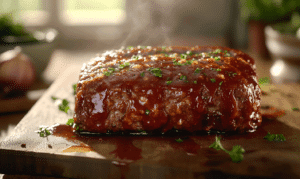Jump to:
Estimated reading time: 10 minutes
Table of contents
What are the disadvantages of overnight oats? Overnight oats are a favorite breakfast for many because they’re easy and seem healthy. But, there are downsides to think about. They can cause digestive problems like gas. This is because the soaking process makes the oats ferment more.
The soaking also makes more phytic acid available. This can block the body from absorbing some nutrients. Some people might find the cold oats uncomfortable to digest.
There are also nutritional concerns. Overnight oats might lose some nutrients during soaking. They have less protein than cooked oatmeal. And, flavored or pre-packaged oats can have too much sugar.
For some, overnight oats can raise blood sugar levels. The long-term effects of eating phytic acid are still unknown. People with gluten sensitivity should watch out for cross-contamination when making them.
What are the disadvantages of overnight oats? Key Takeaways
- Overnight oats may cause digestive issues like gas and bloating due to increased fermentation.
- The soaking process can increase the bioavailability of phytic acid, which can interfere with nutrient absorption.
- Overnight oats may have lower protein content and higher risk of added sugar overconsumption compared to cooked oatmeal.
- Overnight oats may affect blood sugar levels for some individuals and have potential long-term health effects from phytic acid.
- Those with gluten sensitivity should be cautious of cross-contamination in shared preparation spaces.
What are the disadvantages of overnight oats? Introduction
Overnight oats have become a favorite breakfast choice, known for their ease and health benefits. But, there are downsides to consider. This article will look at the issues with overnight oats, like digestive problems, nutritional gaps, and health risks. Knowing these cons helps you decide if overnight oats are good for you.
One big plus of overnight oats is how simple they are to make. You can prepare them the night before and have a quick breakfast in the morning. The soaking time also makes the oats easier to digest and absorb nutrients. But, it’s important to think about the potential downsides too.
| Advantages of Overnight Oats | Potential Drawbacks of Overnight Oats |
|---|---|
|
|
The next parts will dive into the downsides of overnight oats. We’ll look at the concerns and how to lessen them for a better breakfast.

What are the disadvantages of overnight oats? the Common Concerns
Overnight oats are a favorite for many because they’re easy to make. But, there are some issues to consider. These include digestive problems, how they might affect nutrient absorption, and the cold temperature. Knowing these can help you decide if overnight oats are right for you.
Digestive Issues: Gas and Bloating
The way overnight oats are made can cause gas and bloating. This happens because the soaking process breaks down carbs. This can be hard for some people to digest.
Potential for Phytic Acid Interference
Soaking oats can also make phytic acid more available. Phytic acid can block the body from absorbing iron and zinc. This is a problem for those with mineral deficiencies or looking to get the most nutrients from their food.
Cold Temperature and Digestive Discomfort
The cold temperature of overnight oats can be uncomfortable for some. It might be hard for people with sensitive stomachs to digest. The cold oats against the warm body can be a challenge.

Knowing these issues can help you choose between overnight oats and regular oatmeal. You can adjust how you make your oats or pick a warmer breakfast. This way, you can find what works best for you.
What are the disadvantages of overnight oats? Nutritional Concerns of Overnight Oats
Overnight oats are convenient and tasty, but they have some nutritional concerns. The soaking process can cause a loss of certain nutrients. Some vitamins and minerals might go into the soaking liquid. Also, overnight oats have less protein than cooked oatmeal, which is a problem for those wanting more protein in their breakfast.
Nutrient Loss Due to Soaking
The long soak in liquid can lead to a loss of some nutrients. These include:
- Vitamin B1 (thiamine)
- Vitamin B6
- Iron
- Zinc
Low Protein Content Compared to Other Breakfasts
Overnight oats have less protein than cooked oatmeal or other breakfasts like eggs or Greek yogurt. This is a worry for those aiming for a balanced diet.
Risk of Overconsumption of Added Sugars
Many overnight oats, especially the flavored ones, have added sugars. This can lead to too much sugar intake. It’s key to watch the sugar content when choosing or making overnight oats.
“Maintaining a balanced diet with a variety of nutrient-dense foods is crucial for overall health and wellness.”
What are the disadvantages of overnight oats? Are There Any Health Risks with Overnight Oats?
Overnight oats are good for many people, but they might not be right for everyone. They can affect blood sugar levels for some. This is because of their carbs and how quickly they raise blood sugar, which can be a problem for those with diabetes or insulin issues.
What are the disadvantages of overnight oats? Effect on Blood Sugar Levels for Some Individuals
Oatmeal has been shown to help control blood sugar in people with diabetes better than white bread. But, soaking oats overnight might change how they affect blood sugar. People with blood sugar issues should watch their intake and blood sugar levels closely when eating overnight oats.
What are the disadvantages of overnight oats? Gluten Sensitivity and Cross-Contamination
For those with gluten sensitivity or celiac disease, oats can be risky. Oats are often made in places that also handle wheat, barley, and rye. People with gluten issues should look for gluten-free oats or try other grains for their breakfast.
What are the disadvantages of overnight oats? Long-Term Health Effects of Phytic Acid
Soaking oats can make more phytic acid, which can block iron and zinc absorption. The long-term effects of eating a lot of phytic acid are still being studied. But, it’s something to think about for those who eat overnight oats often.
If you have health concerns, talk to a doctor before eating overnight oats. They can help decide if they’re safe for you. Knowing the risks helps you enjoy overnight oats while staying healthy.
Can Overnight Oats Contribute to Weight Gain?
Overnight oats can be a healthy breakfast choice. But, they might lead to weight gain if you add too many high-calorie toppings. It’s easy to eat too much or not control portions, which can also cause weight gain.
High-Calorie Add-Ins to Avoid
When making overnight oats, watch what you add. Things like nut butters, granola, or heavy cream add a lot of calories. This can make you gain weight.
Unhealthy Toppings and Sweeteners
Adding unhealthy toppings and sweeteners, like sugary syrups or candied nuts, can harm the health benefits of overnight oats. These calorie-dense add-ins should be used carefully to keep your breakfast balanced and nutritious.
Overeating and Portion Control Challenges
The ease of making overnight oats can lead to eating too much. Eating more than you should can cause you to gain weight. It’s important to control your portions and eat what you need.
| Ingredient | Calories per Serving | Potential Impact on Weight Gain |
|---|---|---|
| Nut butter (2 tablespoons) | 190 calories | High-calorie add-in that can contribute to weight gain |
| Granola (1/2 cup) | 300 calories | High-calorie add-in that can contribute to weight gain |
| Heavy cream (2 tablespoons) | 120 calories | High-calorie add-in that can contribute to weight gain |
| Sugary syrup (1 tablespoon) | 50 calories | Unhealthy topping that can contribute to weight gain |
| Candied nuts (2 tablespoons) | 180 calories | Unhealthy topping that can contribute to weight gain |
To avoid weight gain with overnight oats, be careful with what you add and how much you eat. Making smart choices and controlling your portions can help you enjoy this nutritious breakfast while staying healthy.
How to Minimize the Disadvantages of Overnight Oats
Overnight oats are a great and healthy breakfast choice. But, they might have some downsides. Luckily, there are ways to lessen these issues and still enjoy your oats.
Tips to Reduce Digestive Discomfort
For those worried about gas and bloating, start with a smaller oat portion. This can help since oats are high in fiber. Adding probiotics like yogurt or kefir can also aid digestion and lessen discomfort.
Try soaking your oats for different times, from 4 to 12 hours. This might help you find the perfect soaking time for your body.
Balancing Nutrients for a Healthier Meal
Overnight oats might not have enough protein compared to cooked oatmeal. To fix this, add protein-rich foods like Greek yogurt, nut butters, or protein powder. This makes your meal more balanced and gives you the nutrients you need for the day.
Making Smart Topping Choices
Be careful with your toppings to avoid too much sugar and unhealthy fats. Choose healthy options like fresh fruit, nuts, seeds, and a little honey or maple syrup. These toppings add fiber, vitamins, and minerals without ruining your oatmeal’s nutritional value.
By following these tips, you can minimize the disadvantages of overnight oats. Enjoy a nutritious and satisfying breakfast that meets your dietary needs and tastes.
Frequently Asked Questions.
Are there any disadvantages to eating overnight oats?
Yes, while overnight oats are healthy, there are a few potential downsides. They may lack variety if eaten every day, and some people might find their cold texture unappealing. Also, oats are high in carbs, so portion size should be considered for those monitoring carbohydrate intake.
Can overnight oats cause digestive issues?
For some, the high fiber content in oats can lead to bloating or gas, especially if your body isn’t used to it. Soaking oats overnight does help improve their digestibility, but it’s best to start with smaller portions if you’re new to high-fiber foods.
Are overnight oats high in calories?
Overnight oats can become calorie-dense if you add ingredients like sweeteners, nut butters, or toppings in large amounts. It’s helpful to measure ingredients for balanced nutrition, especially if you’re mindful of calorie intake.
Do overnight oats lose nutrients when soaked?
Soaking oats overnight doesn’t cause a significant loss of nutrients and may even improve nutrient absorption by breaking down phytic acid, which can inhibit mineral absorption. This makes overnight oats a convenient and nutritious option.
Conclusion
Overnight oats have become a popular breakfast choice. They are seen as easy and possibly healthy. But, this article has looked into some downsides of overnight oats. These include digestive problems, not getting enough nutrients, and health risks.
Knowing these issues helps people decide if overnight oats fit their diet. It’s about making choices that are right for you.
Even though overnight oats can be good for you, it’s key to think about the downsides. You can try to lessen these by eating the right amount, getting the right nutrients, and choosing toppings wisely. Making an informed choice is important.
By carefully considering the pros and cons, you can enjoy the good things about overnight oats. And avoid the not-so-good parts.






